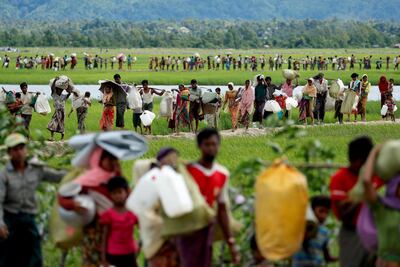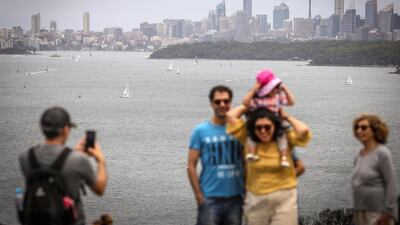Human interaction. That is what most of us have missed in this difficult year of 2020. Measures to limit the devastation of the coronavirus pandemic mandated lockdown restrictions and curfews around the world, a rarity in a time of peace. Being cut off from loved ones for long durations of time, without an end in sight, has taken a toll on people, except for the rare few fortunate enough to live in countries that have overcome Covid-19, or for the unfortunate many who have neither the space nor the luxury to self-isolate. Those who go to their work places do so wearing masks and keeping a safe physical distance from colleagues, making bonding much more difficult.
From shaking hands in a business meeting to hugging friends, it is unclear when we will be able to have the same level of physical interaction as we enjoyed before. Some people have now adopted ways to avoid physical interaction altogether, and it is unclear whether they would abandon their ways in the future.
Over the past few weeks, I spoke to leaders in a number of fields about how their lives and industries had been changed by Covid-19, and importantly, what they learnt in the process. And while leaders such as former UK prime minister Tony Blair had important insights to offer about leading in a time of adversity, his own personal sense of loss is linked to the inability to interact with others. "Embracing people, shaking hands" was his response to my question about what he missed most. For UAE Minister of State for Advanced Technology, Sarah Al Amiri, it was the ability to interact with people from different backgrounds and cultures, through travel. For The New York Times columnist and best-selling author, Thomas Friedman, it was the ability to sit down to have dinner with an old friend.

In the words of German philosopher Wilhelm von Humboldt: “It is always our connection with other people that makes our lives worth living.”
And then there are those who do not have the luxury of worrying about a lack of human interaction. Living conditions force millions to continue co-existing in cramped quarters, be it those who cannot afford to live in their own accommodation or refugees who are confined to over-packed camps. Those I interviewed for my podcast series have all been fortunate in that they have kept their jobs and homes – and there was an acknowledgement of that. While Covid-19 has levelled some playing fields and made us all concerned about our health and families, it has raised the level of inequality in too many societies, be it in access to health care or the ability to work from home or safeguard jobs.
My conversations for My 2020 Podcast were part of an endeavour to look back at 2020 and determine what can be learned from it. It is an annual ritual that millions around the world take part in every December – reflecting on the year that is about to conclude and how it has changed us. But this year is exceptional. With more than 1.7 million people dead from Covid-19 and over 80 million cases worldwide, the impact of the pandemic will not end with the ending of 2020. In addition to personal losses, the global economy will continue to suffer. Unemployment globally has risen. Across OECD member states, unemployment is at 7.3 per cent, 2.1 percentage points higher than in February before the pandemic hit the labour market.
Friedman made the point that “Mother Nature has all of us in her grip. All of us everywhere are facing the same challenge”. How the world meets the challenge of Covid-19, along with the challenge of climate change, will define 2021 and the years to come. It so happens that these two challenging phenomena are taking place as the world witnesses an acceleration in technological advancement and the digitisation of the economy, which as Friedman pointed out, is “very destabilising and very amazing”.

One recurring theme that those I interviewed pointed to is the ability to lead in a time of uncertainty. Ambiguity is not linked solely to Covid-19, but the pandemic has heightened it. The Group CEO of Etihad Airlines, Tony Douglas, warned against trying to give "false certainty" in the months ahead. While it may be comforting to believe that matters will go in a certain direction, the reality is that there is much we still don't know about how the world will emerge from the pandemic.
Agile planning, with set strategic goals and flexible tactical moves, is the only way forward for most businesses. However, that is not an easy feat to achieve – for people or for organisations, especially with so much loss all around.
And in times of loss, compounded by uncertainty, we must find strength from our communities, and from within ourselves. The arts have a vital role to play in this regard. Mikhail Piotrovsky, director of the State Hermitage Museum in Russia, stressed that the world will be in need of restoration after Covid-19. Speaking at the "Reframing Museums" event last month, he said that art will be the "medicine that will help us deal with the hysteria" of this year.
Sultan Al Qassemi, a UAE scholar, Middle East art collector and founder of the Barjeel Art Foundation, believes that the reset imposed by Covid-19 "was a long, long time coming". "We need to treat the earth better, we need to treat each other better," he said. "And hopefully 2021 will be a year where we take these steps in order to improve lives for each other."
Mina Al-Oraibi is editor-in-chief of The National


